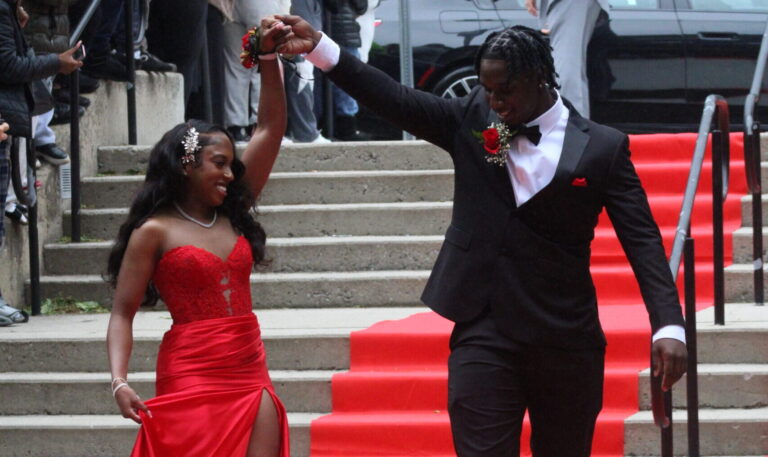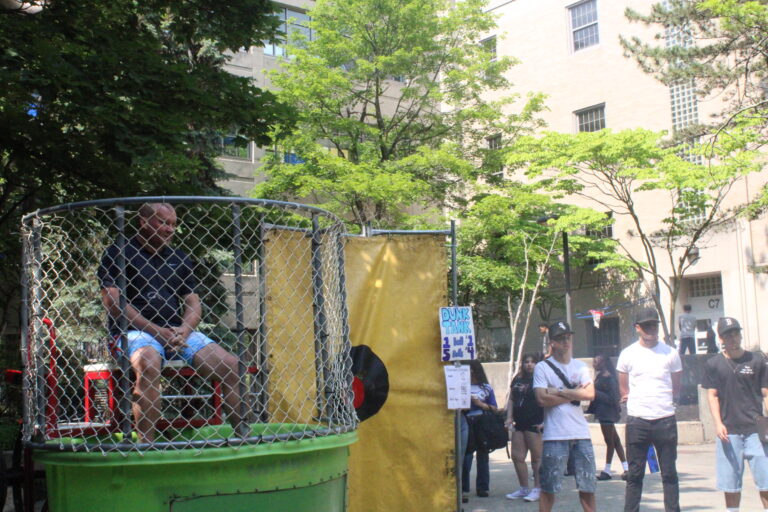Aiden Luciano had the privilege to sit down and discuss some major questions that have risen in the city of Malden, including his own personal opinion on Malden’s development. The following transcript is the conversation that followed.
What are some of the new things you added to Malden that are coming up?
The ones that we are focused on, looking forward, are threefold. One is the former Malden district courthouse on Summer Street, which is just past the Pearl Street Station and the Bikeeny Cafe area; we have acquired that from the state. And we are now in the process of converting that building [into] an Arts and Culture Center. So we are working with the City Council architects, as well as a number of residents, and the [artistic] community to come up with a program that will essentially result in a building being available for [everyone]. So, for instance, one night we envision that you might see the sketch group doing their exhibit, then maybe a week from then you’ll see a black box theater show, then after that may be a comedy show. And maybe at night, you’ll take an adult class. We hope that this will be a place where [people] can do a lot. This is something that has been talked about for as long as I’ve been in office now, which started in 2012.
What was your overall vision for the city as you took office as Mayor of Malden?
What wasn’t the vision? The vision was to do everything I possibly could to help Malden move forward, whether it was having the best constituent services possible, or creating developments that benefit all. One of our first priorities was to demolish the former city hall which was built in the 1970s and closed off Pleasant Street. Our administration tackled this Herculean task as part of our overall goal of rebuilding the downtown. My vision was and is to be part of the progress and do what I can to help make the City a place where everybody can live, learn, share, and grow. Quickly looking back I know personally, I’ve been able to do that. I’ve experienced religions, foods and cultures, and things that I don’t think I would in most other cities and towns. So that’s why when people ask me, ‘Why don’t I travel more?’ We don’t have to when you live in Malden. I get to travel the world in a lot of ways right here in these five square miles.
In your own words, what is success to you?
It’s what it is to you. As long as people feel like they are able to live, work, worship, and do what it is that they need to do in order to advance in life. That, to me, is success. It’s really determined by the people. I can tell you with peace of mind that’s what we strive to do on a daily basis. Don’t get me wrong, there are a lot of issues out there, as you probably know, but I always tell people, the most gratifying part of serving as mayor is when you get an email from a resident who said they had a good experience with City Hall or with our police department and fire department, that to me is the most satisfying part of serving. And that’s what I strive for each and every day – that and making sure that there’s no trash on our streets!
What are your end goals for Malden?
I don’t think there’ll ever be an end goal. My goal is to continue to try to find ways to make people feel proud and be a part of the community. So I think that’s going to be a constant goal; it’s never going to end. We’re just going to keep trying to do that, to give people a chance every day when they wake up to get to where they need to go, and to be able to accomplish what it is they want to do. To be able to come home and do it all over again the next day. That is the goal.
New shops, restaurants, and businesses added to Malden. Is there any that you would want to specifically highlight that is currently piquing your interest?
I would say all of them, contribute in their own way. Prior to your arrival, we were at a real crossroads in the 60s. From what I’m told and read, this was a really bustling area. I mean, it was actually designated as an “All American City”. That had all changed by the 1970s with the construction of the former City Hall. As a matter of fact, I think we only had one restaurant at one time downtown. When we assumed office in 2012, one thing that we heard loud and clear across all four corners of the city is a desire to bring this area back to its former glory, and we always felt that it wasn’t going to be any one store or restaurant but it was going to be a plethora of them. And so that’s what we’ve tried to do and I think we’re on the right track with that. I mean now people ask where they should eat and I don’t have an answer because there’s just so many [places]. The list is so long.
Do you think that this stage of gentrification is good for Malden?
No. And fortunately, now, we are working to prevent that from happening. I mean, I’ve been here just about my whole life. And I’ve always felt Malden has been a place for all, no matter what your situation is; there’s always been a spot for everyone here. And so we are mindful of what impact this could have. That’s why we’re aggressively trying to make sure that we don’t become what some of the cities and towns have become. How we’re doing that is through a series of initiatives and policies. For example, now, we just passed our first ever Inclusionary Zoning Policy, which means anybody that’s coming in to build eight units or more, they have to set aside 15% of those units as affordable housing. The other thing we’re doing is we’re starting to buy vacant properties; we’re going to buy them and convert them to permanent affordable housing. For as far back as time goes from what I’ve read, Malden—has just been a place for everyone. We want to keep it that way.
Another more touchy subject I’d like to converse on is the student walkout last year. What are your thoughts on it as mayor?
I’ve always preferred coming to the table to talk things out. Let’s have a conversation. Let’s communicate, let’s try to work together as best we can. I feel there are better ways to resolve our differences than walking out or strikes or anything of that nature. Someone somehow is always negatively impacted by those [actions] whether it’s students learning, or whether it’s families at home that have to now take off work in order to be there for their children.”
Now more recently with the teacher protests and strikes that had happened. Do you have an opinion or statement?
It’s the same as I just said to you previously about the student walkout. I just felt like that was not the most productive solution. There were other ways. I’ve always felt that you keep talking, keep trying. And if it can’t be worked out in that venue, then you turn to an arbitrator or mediator or someone else to help try to find a resolution. But I don’t think stopping work or striking ends up being productive. We should always strive to resolve our differences through communication.



